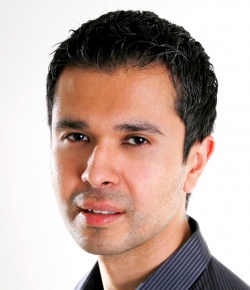Politics
UK will cut non-essential medical care
Following up on European Hospital’s page one report (Issue 2: Cut prescriptions… Choose treatments wisely!) EH reports that the United Kingdom has also launched the campaign to help.
Report: Mark Nicholls

The Academy of Medical Royal Colleges (AMRC), which represents all medical royal colleges in the UK, has unveiled the USA-inspired ‘Choosing Wisely’ programme in partnership with specialty organisations in an attempt to reduce harm caused by using too much medicine or interventions that have no benefit to patients.
The AMRC states that unnecessary care occurs when people are diagnosed and treated for conditions that will never cause them harm. There is also growing evidence that many people are over-diagnosed and over-treated for a wide range of conditions, such as prostate and thyroid cancers, asthma, and chronic kidney disease.
As a first step, organisations participating in the initiative are being asked to identify five tests or procedures commonly used in their field, whose necessity should be questioned and whose risks and benefits should be discussed with patients before using them. These might include tablets for mild depression, too many routine and unnecessary blood tests or medicines for mildly raised blood pressure.
Results from the systematic review will be assessed, analysed and compiled into lists, and in the autumn the top five interventions for each specialty that should not be used routinely, or at all, will be published.
An AMRC paper published in the British Medical Journal has indicated that a culture of more is better, where the onus is on doctors to ‘do something’ at each consultation, has bred unbalanced decision making. The authors added: ‘This has resulted in patients sometimes being offered treatments that have only minor benefit and minimal evidence despite the potential for substantial harm and expense.’
Cardiologist Dr Aseem Malhotra, from the AMRC, points out that this culture stems from defensive medicine, patient pressures, biased reporting in medical journals, commercial conflicts of interest, and lack of understanding of health statistics and risk. ‘Over-diagnosis and over-treatment are the products of a broken system. For the sake of our patients there needs to be a radical overhaul in culture.’
Rather than focusing on a system of payment by results – which encourages doctors and hospitals to do more – the AMRC report suggests that guideline committees ‘should increasingly turn their efforts towards the production of tools that help clinicians to understand and share decisions on the basis of best evidence. They say it is time for action ‘to translate the evidence into clinical practice and truly wind back the harms of too much medicine’.
The AMRC hopes the campaign will change the way medicine and medical treatments are prescribed and believe it could potentially have far-reaching implications for the nature of healthcare in the UK. as it has in the USA, Canada and Australia. In Canada, for example, the Choosing Wisely project has already identified treatments whose value should be questioned with patients. They include exercising restraint when ordering X-rays for lower back pain; avoiding the use of antipsychotics as a first choice to treat behavioural and psychological symptoms of dementia; and not prescribing antibiotics for patients with upper-respiratory infections that are likely to be viral in origin.
‘This requires a culture change within the NHS but it is a real opportunity to truly put patients first,’ Malhotra believes. ‘I also believe it has the potential to improve health outcomes for our patients in a relatively short space of time. But it is an opportunity for us as medical professionals to really make an impact to improve health and reduce demand on the service.’
AMRC chair, Professor Dame Sue Bailey: ‘The whole point of Choosing Wisely is to encourage doctors to have conversations with their patients and explain honestly what the value of a treatment is. It’s not, and will never be, about refusing treatment or in any way jeopardising safety. It’s just about taking a grown-up approach to healthcare and being good stewards of the resources we have.”
22.06.2015





